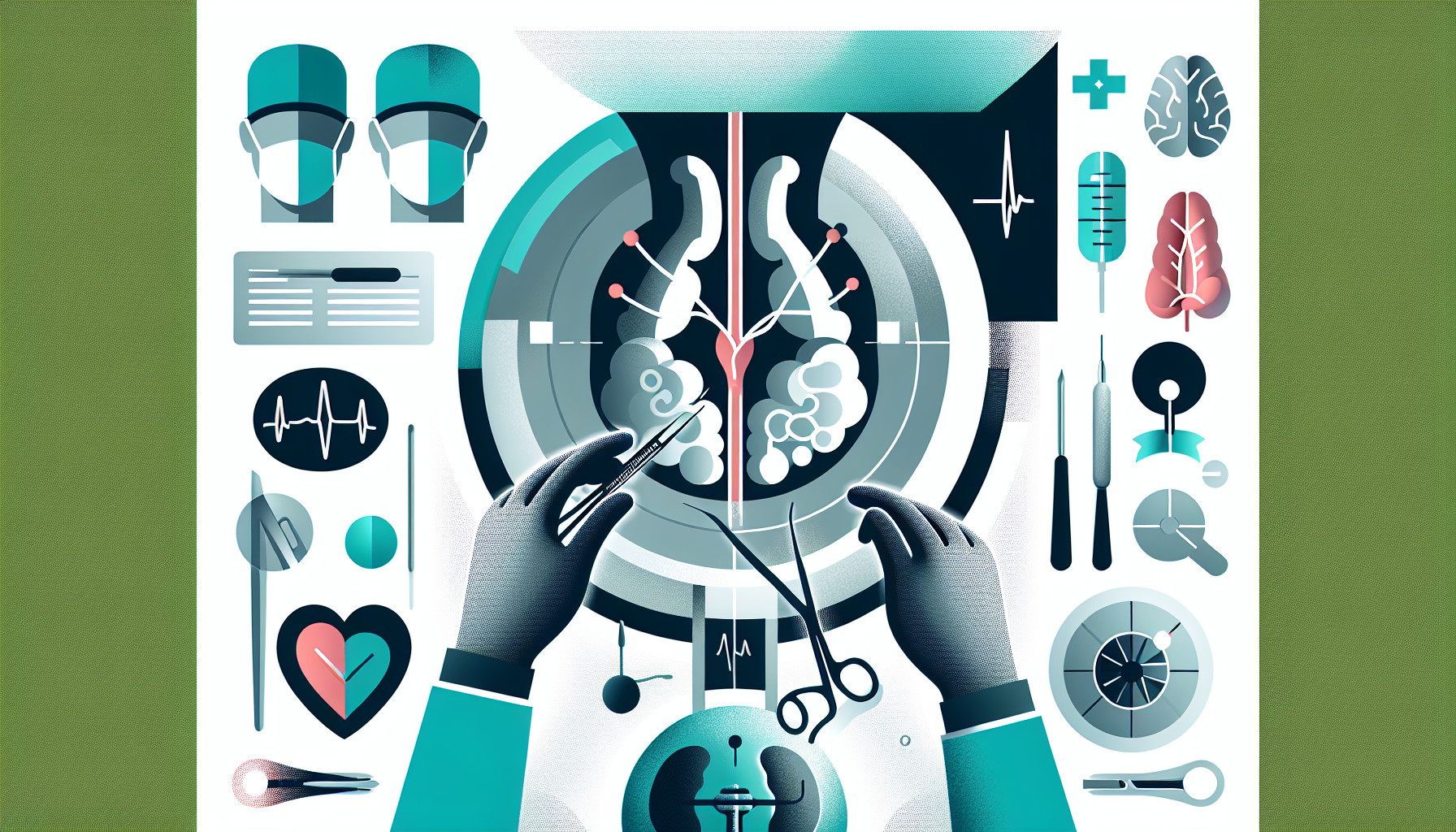Our Summary
This research paper looked at the outcomes of different surgeries for men who had an infection in their penis after having a penile implant. Two types of surgeries were compared: one where the infected implant is removed and replaced immediately (salvage surgery), and another where the replacement is done at a later date (delayed reimplantation).
The results showed that in 81% of cases, the salvage surgery was successful, with men losing on average 0.6 cm in penis length. On the other hand, when the replacement was done at a later date, men lost on average 3.7 cm in penis length. This loss was related to the original penis size, but not to the patient’s age, whether they had diabetes, the type of bacteria causing the infection, or how long they waited to have the replacement surgery.
In conclusion, the study suggests that when possible, salvage surgery should be offered to patients with an infected penile implant, as it helps to preserve penis length. In contrast, when the implant is removed and replaced at a later date, men can expect to lose between 15% to 30% of their penis length.
FAQs
- What are the two types of surgeries compared in the research for men with infected penile implants?
- What is the success rate and average penis length loss with salvage surgery?
- How much penis length can men expect to lose if the infected penile implant is replaced at a later date?
Doctor’s Tip
Therefore, it is important for patients considering penile implant surgery to discuss the risks and potential outcomes with their doctor, including the possibility of infection and subsequent surgeries. Additionally, following post-operative care instructions and maintaining regular follow-up appointments with their healthcare provider is crucial for a successful recovery.
Suitable For
Patients who are typically recommended penile implant surgery include those who have erectile dysfunction that does not respond to other treatments such as medication or vacuum erection devices. This may be due to various causes such as diabetes, high blood pressure, or prostate cancer treatment. Additionally, patients with Peyronie’s disease, a condition characterized by the development of scar tissue in the penis causing curvature or pain during erections, may also be candidates for penile implant surgery.
Patients who have had a previous penile implant that has become infected may also be recommended for surgery to remove and replace the implant. In cases of infection, salvage surgery is often preferred to preserve penis length and reduce the risk of complications.
Overall, penile implant surgery is typically recommended for patients who have tried other treatments for erectile dysfunction without success and are looking for a more permanent solution to improve their sexual function and quality of life.
Timeline
Before penile implant surgery:
- Patient consults with urologist to discuss treatment options for erectile dysfunction.
- Patient undergoes evaluation to determine if they are a candidate for penile implant surgery.
- Patient and doctor discuss risks, benefits, and expectations of the surgery.
After penile implant surgery:
- Patient may experience some pain, swelling, and bruising in the genital area immediately after surgery.
- Patient is instructed on how to care for the surgical site and manage any discomfort.
- Patient may need to refrain from sexual activity for a period of time while the surgical site heals.
- Patient follows up with their doctor for post-operative appointments to monitor healing and address any concerns.
- Patient may undergo physical therapy to help with recovery and rehabilitation.
- Patient begins to experience improved erectile function and satisfaction with sexual activity.
What to Ask Your Doctor
Questions a patient should ask their doctor about penile implant surgery:
- What are the potential risks and complications of penile implant surgery?
- How long is the recovery period after penile implant surgery?
- Will I experience any changes in sensation or sexual function after the surgery?
- What type of implant will be used and why?
- What is the success rate of penile implant surgery in treating erectile dysfunction?
- How long will the implant last before needing to be replaced?
- What are the chances of infection after the surgery and how is it treated?
- What are the differences between salvage surgery and delayed reimplantation in case of infection?
- What can I expect in terms of penis size after the surgery?
- Are there any lifestyle changes or precautions I should take after getting a penile implant?
Reference
Authors: Lopategui DM, Balise RR, Bouzoubaa LA, Wilson SK, Kava BR. Journal: J Urol. 2018 Jul;200(1):171-177. doi: 10.1016/j.juro.2018.01.082. Epub 2018 Apr 14. PMID: 29408215
